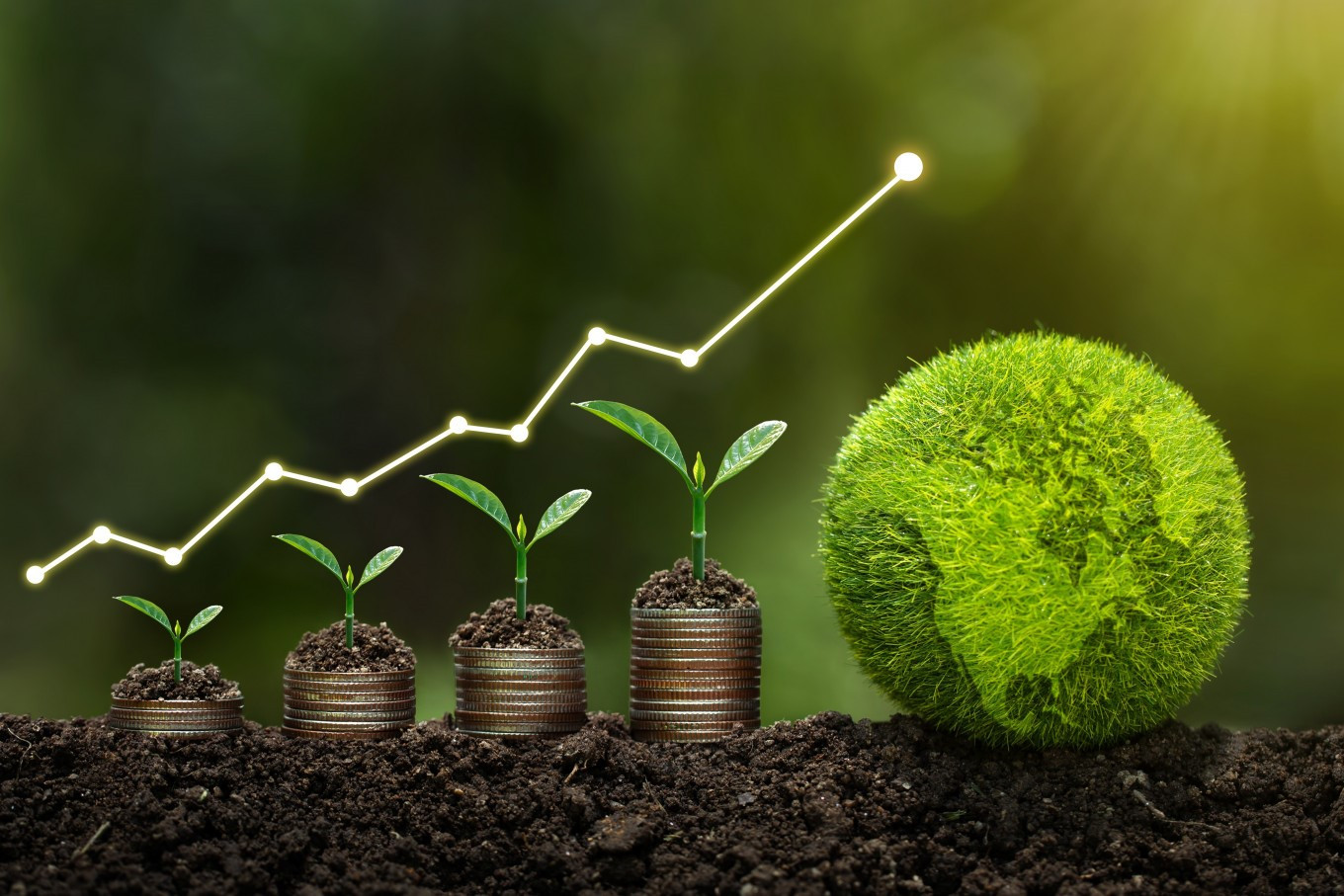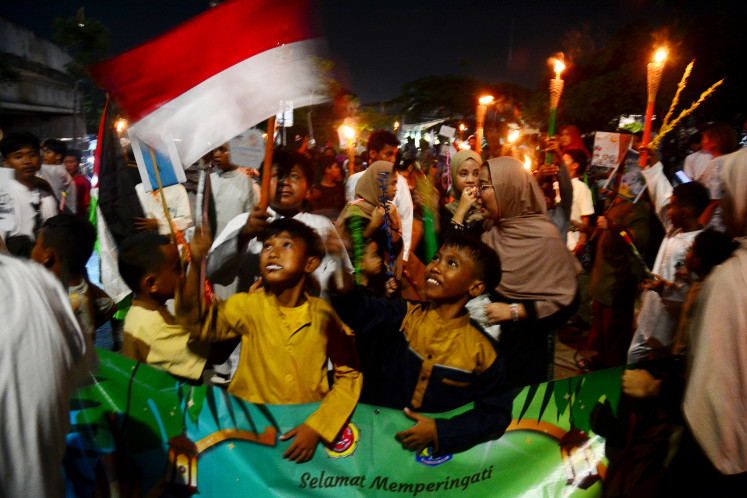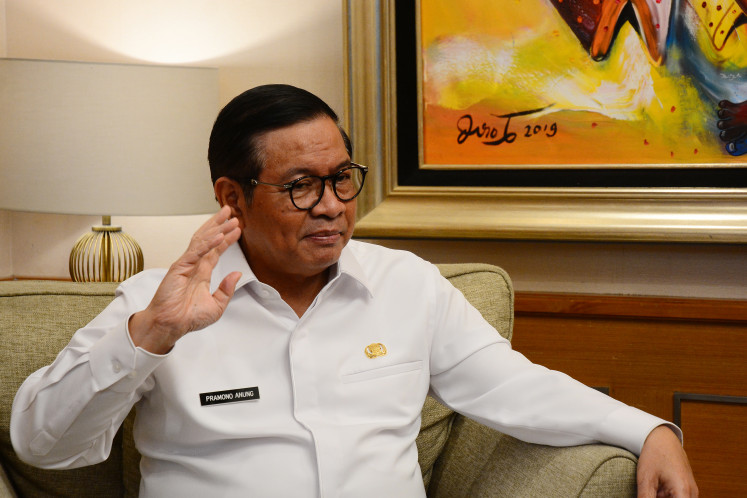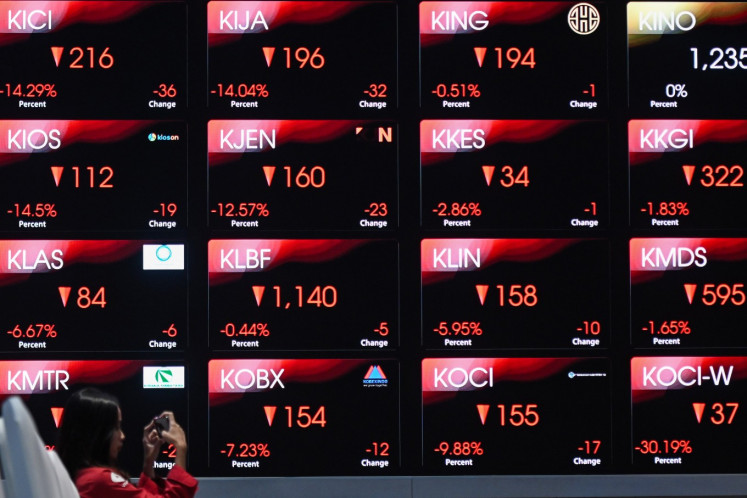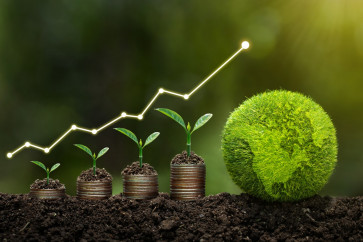Popular Reads
Top Results
Can't find what you're looking for?
View all search resultsPopular Reads
Top Results
Can't find what you're looking for?
View all search resultsAnalysis: Prabowo’s energy vision, backed by 1.2 billion euros in green financing
Change text size
Gift Premium Articles
to Anyone
I
ndonesia received a significant boost of 1.2 billion euros (US$1.14 billion) in green financing from a German bank, Kreditanstalt für Wiederaufbau (KfW), at the United Nations Climate Change Conference’s 29th meeting (COP29) in Baku, Azerbaijan. This funding has unlocked a gateway for President Prabowo Subianto’s energy vision amid environmentalists’ concerns about the President’s future commitment to addressing climate change.
The 1.2 billion euro green financing deal, which focuses on bolstering Indonesia’s renewable energy sector, highlights the country’s potential to transition toward cleaner energy. State-owned utility PLN and KfW are partnering to fund the construction of pumped storage hydroelectric plants and transmission systems that will integrate renewable energy sources into the national grid.
Indonesia plans to add 100 GW of new electricity generation capacity over the next 15 years, with 75 GW coming from renewable energy sources. The country will need a staggering $281 billion annually for green financing, but the state budget (APBN) can only cover a fraction of this, at around Rp 37.9 trillion ($2.37 billion).
One of President Prabowo’s flagship programs is achieving energy self-sufficiency. While Prabowo has acclaimed the possibility of energy self-sufficiency, Indonesia is facing an energy trilemma, where the complex energy landscape, characterized by energy security, affordability issues and sustainability concerns, suggests a more nuanced reality.
Despite the urgency of the energy and climate crisis, the President has rarely addressed this issue in his speeches since taking office on Oct. 20. President Prabowo only reiterated energy security, but not energy transition from fossil fuels toward clean energy. During his inauguration speech, the President explained that Indonesia has abundant of energy sources for self-sufficiency, especially palm oil for biodiesel to reduce crude oil and fuel import dependency, coal and renewable energy sources for electricity such as hydro and geothermal energy.
Hashim Djojohadikusumo, President Prabowo’s younger brother, attended COP29, representing the President, and delivered his long-awaited message regarding the energy transition. However, Hashim’s appointment as the President’s special envoy and Indonesian delegation head at COP29 has drawn criticism from civil society activists who question his suitability for the task.
There is a growing concern that the programs presented by Hashim on behalf of President Prabowo at COP29 are hypocritical and will undermine Indonesia’s climate change mitigation efforts. One of Prabowo’s aims to achieve this energy transition is to expand carbon trading and position Indonesia as a carbon capture and storage hub. Indonesia plans to offer 577 million tonnes of carbon stock. Additionally, some worry that this is a distraction from real climate action as they focus on offsetting emissions rather than reducing them at the source, which contradicts the Paris Agreement goals.

